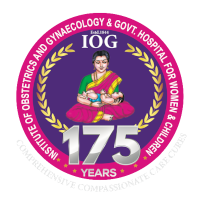An antenatal mother should remember that she is her child’s first doctor. The antenatal period is very important to deliver a healthy baby. Following your doctor’s advice from day one will make your pregnancy a wonderful experience to cherish forever. Read the following with your partner before beginning your journey as a mother.
The following should be done
- Confirmation of pregnancy.
- Basic investigations
- Dating scan
- Complete blood count
- Liver function test
- Renal function test
- HIV
- HbsAg
- VDRL
- Blood grouping and typing, if blood group is negative you must do ICT test
- Thyroid function test
- Oral glucose challenge test
- Inj . Td 2 doses to be taken at one month interval
- To watch for bleeding
- To get RCH ID – Visit a nearby primary health center, local government hospital or call 102 to register your pregnancy. Even you can register through web portal www.picme.tn.gov.in. Your village health nurse will follow your pregnancy and assist you with maternity benefit schemes. Registering your pregnancy is very important to avail maternity benefits. you can also record details of your antenatal check-ups, birth registration, and immunizations on the PICME portal.
- To take T. Folic acid supplement daily till 3 months of pregnancy
- To disclose your past medical history, obstetric history and family history of both biological parents to doctor. All your records will be maintained secretly.
- Discuss about your current and recent medicines including over-the counter medicines and herbal medicines.
- To discuss about any domestic violence which hinders you from proper health checkups so that we may provide a good support network.
- To disclose about any substance abuse with the doctor.
- To do NT scan at 11 to 13+6 wks of pregnancy.
II trimester
- To take iron vitamin and calcium supplements regularly to be continued till 6 months after delivery.
- To take iron rich diet vegetables and fruits
- To look for first fetal movement which you may feel after 18 wks
- Don’t fail to do anomaly scan at 20-21 wks to look for fetal anomalies and also look for fetal ECHO
- To repeat OGCT at 24-28 wks to look for sugars
- Have a proper sleep and diet
- Listen to good music
- To refrain from unpleasant environment and to surround yourself with positive people.
- Try to communicate with your baby and develop a bond with your growing foetus.
- To decide about the place of delivery in advance and try to have a regular checkup there so that it will be easy for your doctor to know about your history very well.
- To check for haemoglobin levels and aim to keep your haemoglobin level at 12g
- Monitor Bp regularly.
- Try to note any unusual symptoms in a diary and try to inform ur doctor during your visit to the hospital because you may forget to tell the important danger sign which your doctor will pick up.
- To do screening ECG and ECHO.
III trimester
- To do growth scan after 28 weeks and 35 weeks.
- To have frequent health checkups.
- To monitor foetal movements.
- To hydrate adequately.
- To start minimal physical activity like walking and doing household chores.
- To follow your doctors advice based on your clinical history and health status
- To have a positive approach towards delivery and trust your doctor in making the decisions.
- To maintain ideal weight for a better delivery outcome. People with obesity may faces challenges during normal delivery and complications during postoperative period after caesarean delivery.
- (8th point Optimized) Maintaining an optimal weight is crucial for a favourable delivery experience. Individuals with obesity might encounter difficulties during natural childbirth and face potential complications in the postoperative phase following a caesarean section.
